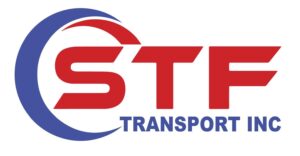
The trucking industry is a cornerstone of Canada’s economy, providing essential transportation services that keep goods flowing across the country. With a diverse range of roles and opportunities, the trucking industry offers rewarding careers for individuals looking for stable employment, competitive salaries, and opportunities for advancement. In this blog post, we’ll explore the various job opportunities available in the trucking industry in Canada and highlight key roles that play a crucial role in keeping goods moving efficiently.
1. Truck Driver:
Truck drivers are the backbone of the trucking industry, responsible for transporting goods safely and efficiently from one location to another. There are several types of truck drivers, including long-haul drivers, local drivers, and specialized drivers (e.g., tanker drivers, flatbed drivers). Truck driving offers competitive wages, job stability, and the opportunity to travel and see different parts of the country.
2. Dispatcher:
Dispatchers play a crucial role in coordinating the movement of trucks, drivers, and shipments to ensure timely deliveries. They assign loads to drivers, plan routes, communicate with drivers and customers, and address any issues that may arise during transportation. Dispatchers require strong organizational skills, communication skills, and the ability to multitask effectively.
3. Logistics Coordinator:
Logistics coordinators oversee the logistical aspects of transportation operations, including scheduling, routing, and inventory management. They work closely with dispatchers, drivers, and customers to ensure that shipments are delivered on time and in accordance with customer requirements. Logistics coordinators require strong analytical skills, attention to detail, and the ability to work under pressure.
4. Fleet Manager:
Fleet managers are responsible for overseeing a company’s fleet of trucks and drivers, ensuring that vehicles are properly maintained, serviced, and compliant with regulatory requirements. They also manage driver schedules, monitor vehicle performance, and implement strategies to optimize fleet efficiency and productivity. Fleet managers require strong leadership skills, technical knowledge, and experience in fleet management.
5. Safety and Compliance Officer:
Safety and compliance officers are responsible for ensuring that trucking operations comply with all relevant safety regulations and industry standards. They conduct safety inspections, develop safety policies and procedures, and provide training to drivers and staff on safety best practices. Safety and compliance officers play a critical role in promoting a culture of safety within the trucking industry and reducing the risk of accidents and incidents.
6. Customer Service Representative:
Customer service representatives liaise with customers to coordinate shipments, address inquiries, and resolve issues related to transportation services. They serve as the primary point of contact for customers and work closely with other members of the transportation team to ensure that customer needs are met. Customer service representatives require strong communication skills, problem-solving abilities, and a customer-focused mindset.
7. Maintenance Technician:
Maintenance technicians are responsible for repairing and maintaining trucks and other vehicles to ensure they are safe, reliable, and in optimal working condition. They perform routine maintenance tasks, diagnose and troubleshoot mechanical issues, and conduct repairs as needed. Maintenance technicians play a critical role in keeping trucks on the road and minimizing downtime due to maintenance-related issues.
